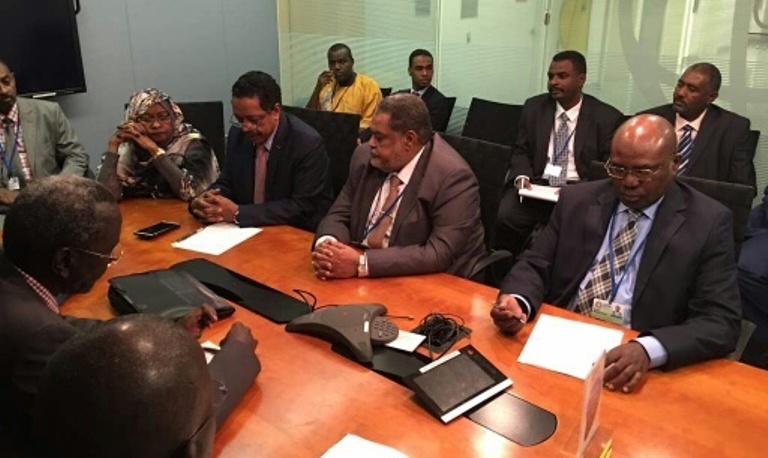Sudan and South Sudan to jointly write off foreign debts
October 31, 2017 (KHARTOUM) – The governments of Sudan and South Sudan on Monday agreed to jointly work on convincing the international community into writing off their joint foreign debts and to extend the zero option agreement that expires on October 2018.

Both leaders reportedly agreed it was vital to secure the African Union’s support in handling the question of the joint foreign debts. The undersecretaries of the two nation’s ministries attended the meeting.
Meanwhile, the Sudanese finance minister, as the meeting, pledged to provide training and capacity building for staffers from the South Sudan ministry of finance. He also said all arrears of former employees and pensioners who worked in the government bureaucracy prior to South Sudan’s secession would be settled.
Al Rikabi, according to SUNA, underlined the keenness of the Sudanese government to strengthen further relations between the two countries saying Khartoum looks forwards to the coming visit by South Sudan President Salva Kiir to Sudan on Wednesday this week.
“He [Al Rikabi] expressed hope that Sudan looks forwards to signing a number of agreement, more confidence building and to better neighborhood relations between the two countries,” SUNA reported.
During the meeting in Khartoum, the two sides reportedly agreed to open the crossing point and to encourage trade, facilitate customs and banking procedures and ease people movement between the two countries as well as the smooth flow of commodities and goods to help better and reinforce relations between the two countries.
South Sudan got the lion’s share of the oil when it split from Sudan in 2011, but it’s only export route is through Sudan, giving Khartoum leverage and leading to ongoing pricing disputes.
Since its independence, however, South Sudan has relied on oil for all income—a situation that has significantly compounded ongoing political and economic instability due to the fall in crude oil prices.
According to South Sudanese officials, production had in the past reached as high as 350,000 bpd, but this fell after a dispute with Sudan over fees for pumping South Sudan’s crude through Sudan’s export pipeline, which led South Sudan to halt production in 2012.
(ST)
